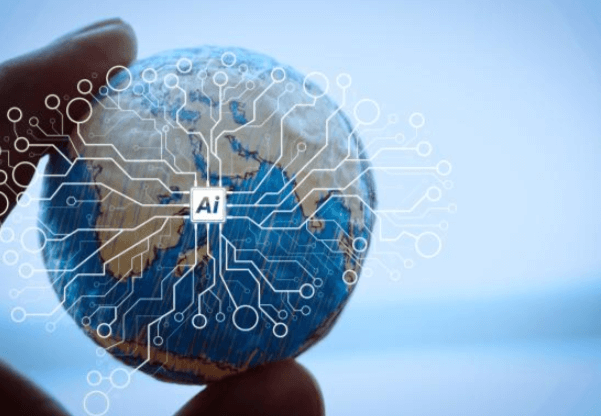Exploring the Role of Ethical AI in Shaping Tomorrow’s Technologies

In today’s rapidly evolving digital landscape, artificial intelligence (AI) is a driving force behind numerous technological advancements, spanning industries from healthcare to finance, and from education to entertainment. As AI continues to infiltrate every corner of society, one crucial factor stands out: the need for ethical AI. Ethical AI is not merely a buzzword but a foundational principle guiding the development and deployment of AI systems to ensure fairness, transparency, and accountability. This exploration into the role of ethical AI examines how it shapes the technologies of tomorrow, focusing on the potential benefits, challenges, and long-term implications for society.
Understanding Ethical AI: What It Means and Why It Matters
Ethical AI refers to the application of ethical principles and values in the design, development, and implementation of artificial intelligence technologies. These principles include fairness, accountability, transparency, and the protection of privacy. AI systems are built using vast amounts of data, and these systems often have the ability to learn, adapt, and make decisions without human intervention. This autonomy, while powerful, presents numerous ethical challenges that need to be addressed to avoid biases, discrimination, and potential harm.
The ethical dimension of AI is critical because it directly impacts individuals and society at large. When AI systems are used in decision-making processes—such as determining credit scores, approving loans, hiring employees, or even diagnosing medical conditions—it is imperative that they operate in a manner that is just and equitable. Unethical AI systems risk perpetuating societal inequalities and exacerbating issues like racial or gender discrimination, making the push for ethical standards essential.
The Foundations of Ethical AI Principles
Several ethical principles guide the responsible use of AI technologies. Understanding these principles is vital to ensure that future technologies are built on a solid ethical foundation.
- Fairness: AI should operate without discrimination. This means eliminating biases in the data sets used to train AI systems. For example, if a facial recognition system is trained predominantly on images of light-skinned individuals, it may perform poorly when identifying darker-skinned individuals, leading to inaccurate or unfair outcomes. Ensuring fairness means training AI systems on diverse data and continuously auditing their performance to mitigate bias.
- Transparency: AI systems must be transparent in how they make decisions. This principle is particularly important in situations where AI is used in critical decision-making, such as in the criminal justice system or in financial institutions. Transparency involves providing explanations for AI-driven decisions, allowing users and stakeholders to understand the logic and process behind the outcomes.
- Accountability: With great power comes great responsibility. AI systems must be accountable, meaning that their developers, operators, and users should be held responsible for their actions and decisions. This involves establishing clear lines of accountability to address any harm caused by AI systems and ensuring there are mechanisms for redress in cases of unethical or harmful AI outcomes.
- Privacy: The vast amounts of data used to train AI systems often include sensitive personal information. Ethical AI ensures that this data is handled responsibly, with strong safeguards to protect privacy. Users should have control over their data, and AI systems should operate within legal and ethical boundaries when it comes to data collection and usage.
The Role of Ethical AI in Key Industries
Ethical AI plays a transformative role in a variety of industries, with its importance only set to grow in the coming years. Let’s explore how ethical AI is shaping some key sectors of the economy.
1. Healthcare
AI in healthcare promises to revolutionize patient care, diagnostics, and personalized medicine. From AI-driven diagnostic tools to robotic surgery, the potential benefits are immense. However, the stakes are high when it comes to ethical considerations. If an AI system misdiagnoses a patient or suggests an inappropriate treatment, the consequences can be fatal. Thus, ethical AI in healthcare requires ensuring that AI tools are accurate, explainable, and free from bias. Furthermore, patient data must be safeguarded, with strict adherence to privacy regulations such as the Health Insurance Portability and Accountability Act (HIPAA).
2. Financial Services
AI is already transforming the financial industry, particularly in areas like fraud detection, credit scoring, and algorithmic trading. However, without proper ethical oversight, AI can perpetuate financial inequalities. For instance, AI-based credit scoring models could inadvertently discriminate against minorities or low-income individuals if trained on biased data. Ethical AI in finance calls for transparency in how decisions are made, ensuring that consumers are not unfairly penalized or excluded from financial opportunities.
3. Education
The education sector is increasingly embracing AI-driven tools for personalized learning, administrative tasks, and even grading. However, ethical AI in education is critical to ensure that all students, regardless of background, have equal access to high-quality learning experiences. Biases in AI-driven educational tools could lead to disparities in student performance evaluations, affecting their academic and career prospects. Moreover, the use of AI in schools raises concerns about student data privacy, making it essential to enforce strict data protection measures.
4. Autonomous Vehicles
One of the most high-profile applications of AI is in autonomous vehicles. Ethical AI in this field is crucial because self-driving cars make life-or-death decisions. How should an AI system respond if faced with an unavoidable accident—should it prioritize the safety of its passengers or pedestrians? These are moral dilemmas that need to be addressed through the lens of ethical AI. Ensuring that autonomous vehicles operate safely and ethically requires rigorous testing, clear accountability for accidents, and an ongoing commitment to improving AI decision-making algorithms.
Challenges to Implementing Ethical AI
While the importance of ethical AI is widely recognized, there are several challenges to implementing it effectively. These challenges range from technical limitations to regulatory and societal hurdles.
- Bias in Data: One of the most significant challenges is the presence of bias in the data used to train AI systems. Bias can stem from historical inequalities, underrepresentation of certain groups, or flawed data collection methods. Addressing bias requires a multi-faceted approach, including better data collection practices, regular auditing of AI systems, and the development of techniques to mitigate bias in algorithms.
- Lack of Transparency: Many AI systems, especially those that use deep learning, operate as “black boxes” with decision-making processes that are difficult to explain or understand. This lack of transparency poses challenges for ensuring accountability, as users and regulators may struggle to determine why an AI system made a particular decision. Researchers are actively working on explainable AI (XAI) techniques to improve transparency, but this remains an ongoing challenge.
- Regulatory Gaps: The rapid pace of AI development has outpaced the creation of comprehensive regulatory frameworks. Currently, there are limited legal guidelines governing the ethical use of AI in many industries, leaving companies to self-regulate. While some organizations, such as the European Union, are developing AI regulations, more work is needed to create global standards that ensure ethical AI practices across borders.
- Cultural and Societal Factors: Ethical norms vary across cultures and societies, making it difficult to establish universal ethical AI standards. For example, privacy expectations differ significantly between countries like the United States and China. Navigating these differences requires sensitivity to cultural values and the development of flexible, context-specific ethical frameworks for AI.
The Future of Ethical AI: Opportunities and Solutions
Despite the challenges, the future of ethical AI is promising. Advances in technology, coupled with growing awareness of the ethical implications of AI, are paving the way for more responsible AI development. Here are some opportunities and solutions that could help ensure a future where ethical AI thrives.
- Collaborative Regulation: Governments, tech companies, and civil society organizations need to work together to create comprehensive regulations that promote ethical AI. This could involve establishing international AI ethics boards, developing industry-specific guidelines, and creating legal frameworks that hold AI developers accountable for their products.
- Ethics by Design: Incorporating ethical considerations into the AI development process from the outset is essential. Ethics by design involves building fairness, transparency, and accountability directly into AI systems rather than retrofitting these principles after deployment. This proactive approach could help prevent many of the ethical issues currently associated with AI technologies.
- AI Ethics Training and Education: As AI becomes more integrated into society, it is crucial to educate the next generation of AI developers and users about ethical principles. Universities and training programs should incorporate AI ethics into their curricula, ensuring that future AI professionals are equipped to develop responsible technologies.
- Public Engagement and Awareness: Raising public awareness about the ethical implications of AI is vital. Informed consumers can demand more transparency and accountability from the companies that develop and deploy AI technologies. Public engagement also encourages greater scrutiny of AI systems and fosters a more open dialogue about the societal impact of AI.
Conclusion: Ethical AI as the Foundation for a Better Future
The role of ethical AI in shaping tomorrow’s technologies cannot be overstated. As AI continues to revolutionize industries and permeate daily life, it is essential that these systems operate within ethical boundaries. Fairness, transparency, accountability, and privacy are not just lofty ideals—they are prerequisites for building a future where AI benefits everyone. Addressing the challenges of ethical AI requires collaboration between governments, businesses, and individuals, as well as a commitment to developing technologies that prioritize human dignity and societal well-being.
Ethical AI is not just about preventing harm; it is about actively creating a better, more just world. By integrating ethical principles into AI development today, we can ensure that the technologies of tomorrow are not only powerful but also serve the greater good.





